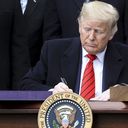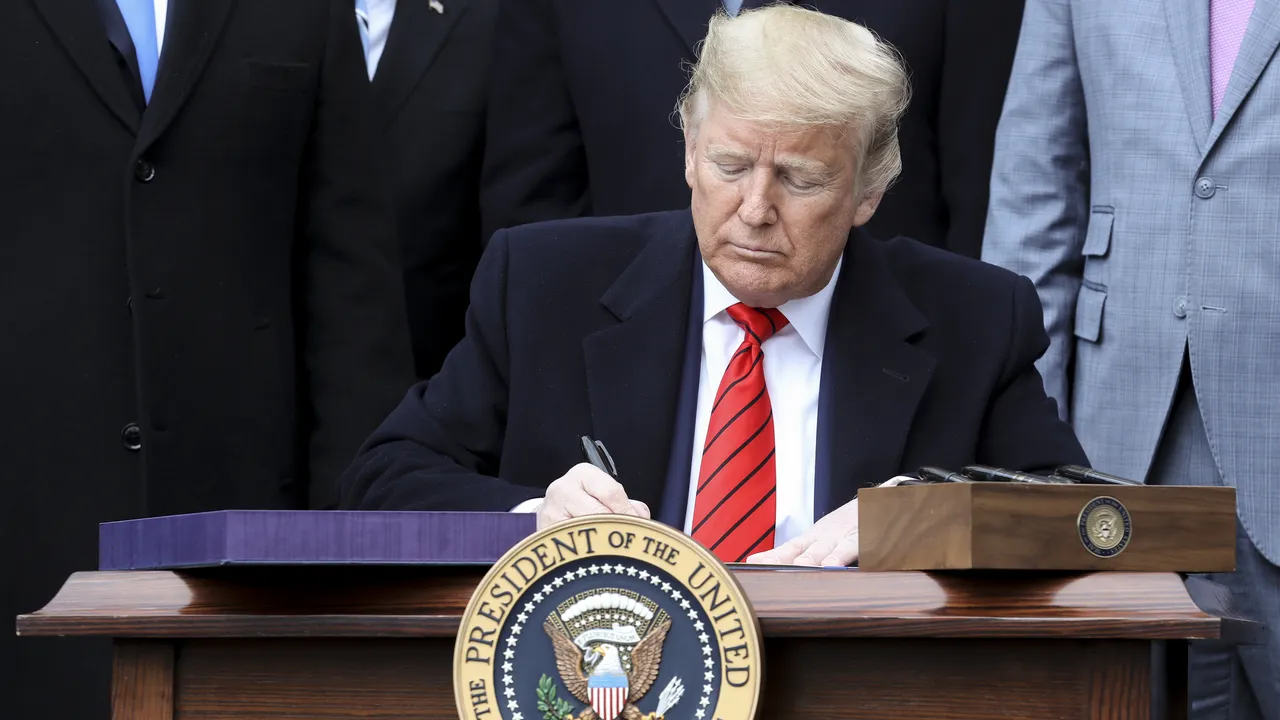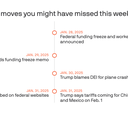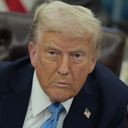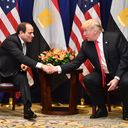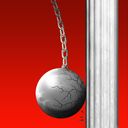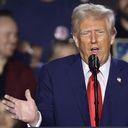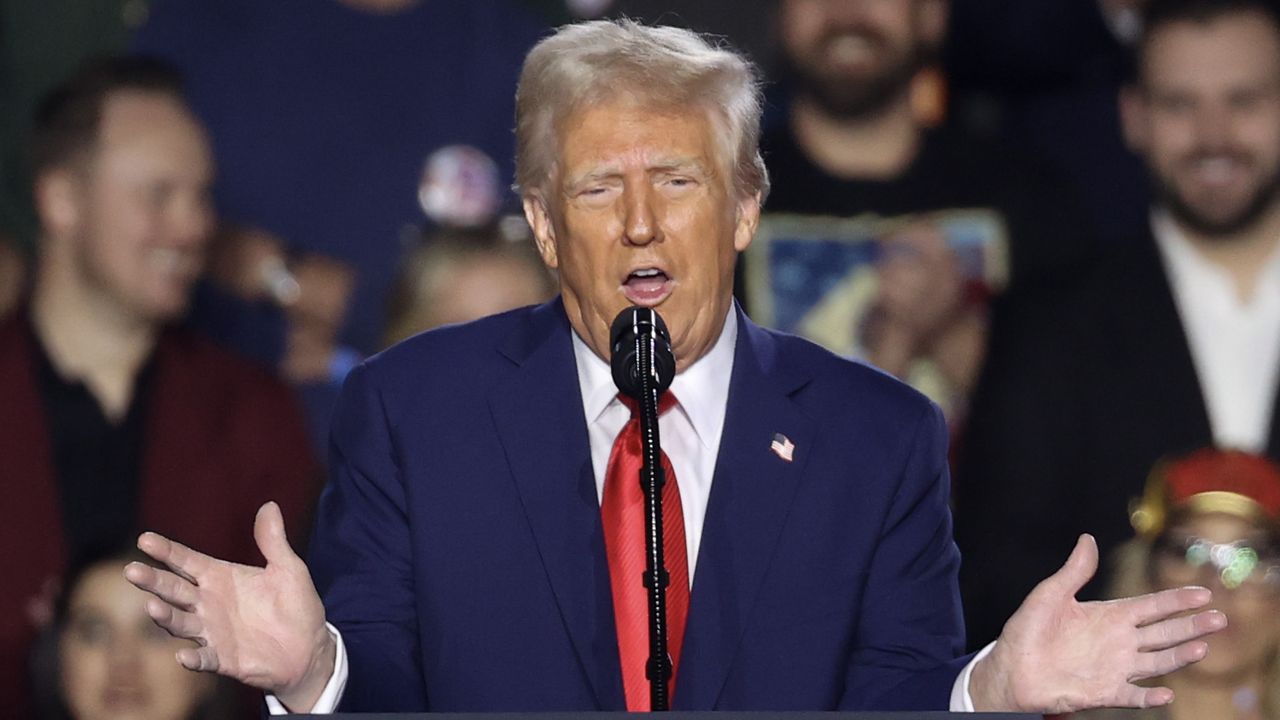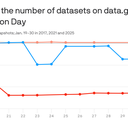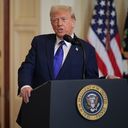Trump imposes tariffs on Canada, Mexico and China
President Trump on Saturday imposed across-the-board tariffs on North American allies and China, which sparked immediate retaliation against domestic manufacturers.
Why it matters: After weeks of "will he or won't he," Trump opted for sweeping levies that could de-link economic ties with top trading partners. The impact on American consumers and businesses may be profound.
Zoom in: Mexican and Canadian imports are now subject to 25% tariffs — with the exception of energy from Canada, which will face 10% tariffs.
- The White House also announced additional 10% tariffs on for Chinese goods — many of which already face import taxes held over from Trump's first term.
What they're saying: The White House said the tariffs, which take effect on Tuesday, were a response to an emergency threat posed by undocumented immigrants and drugs.
- The Trump administration said the tariffs would remain in place "until the crisis is alleviated."
- The executive orders include clauses that say the U.S. may "increase or expand in scope" the tariffs if the nations retaliate.
Hours after the White House orders, retaliation started: Canadian Prime Minister Justin Trudeau announced retaliatory measures that would put 25% tariffs on more than $100 billion worth of U.S. exports, including beer, food products and appliances. Some tariffs will begin to take effect on Tuesday.
- Trudeau also encouraged Canadians to buy locally-made products — skip Florida-made orange juice or Kentucky bourbon — and forego U.S. vacations.
What to watch: Business interest and lobbying groups, which have cheered Trump's expected deregulatory and tax policies, released a flurry of statements condemning the orders.
- The U.S. Chamber of Commerce, in a statement, warned the tariffs "will only raise prices for American families and upend supply chains."
- "The Chamber will consult with our members, including main street businesses across the country impacted by this move, to determine next steps to prevent economic harm to Americans."
Between the lines: The impact of the tariffs could be passed on to a wide range of everyday consumer products.
- Trump insists tariffs are not inflationary, though he conceded Friday they could cause "temporary, short-term disruption."
- The Tax Foundation estimated Friday that the proposed tariffs would effectively be a tax of $830 a year on the average U.S. household.
Case in point: Most of the U.S. supply of tomatoes, avocados and beer comes from Mexico.
- Auto parts, oil and gas are among the key Canadian exports to the U.S.
The intrigue: Trump is leaning on unprecedented authority to impose tariffs on the largest U.S. trading partners.
- The White House invoked the International Emergency Economic Powers Act, a Carter-era law that give the president wide-ranging powers in an emergency.
- The law has never been tapped to impose tariffs and is likely to draw legal scrutiny.
The big picture: The announcement ends days of drama that left domestic industries guessing and sent financial markets reeling.
- Trump has demanded that Canada, Mexico and China curb the flow of fentanyl into the U.S. In the case of Canada and Mexico, he has demanded tighter border controls for immigration as well.
- It's unclear whether compliance with such asks would be enough to remove tariffs.
Flashback: The White House drew up a tariff plan for Colombian imports in recent days, threatening levies unless the nation agreed to accept flights carrying deported immigrants. When Colombia complied, the threats receded.
What we're watching: In effect, Trump has blown up the free-trade deal with Mexico and Canada, the USMCA, that he negotiated in his first term.
- These new tariffs set the scene for the beginnings of a new global trade war.
Editor's Note: This story has been updated with reactions to the executive order.
